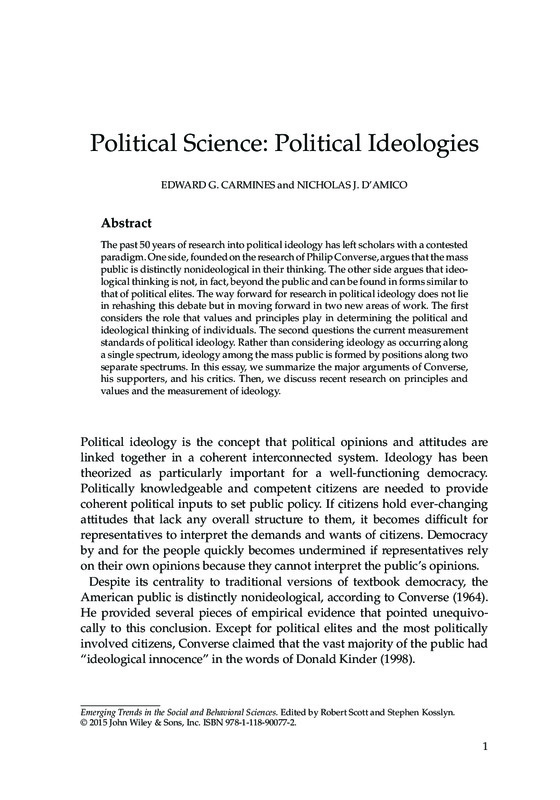Political Science: Political Ideologies
Title
Political Science: Political Ideologies
Author
Carmines, Edward G.
D'Amico, Nicholas J.
Research Area
Social Institutions
Topic
Government Systems
Abstract
The past 50 years of research into political ideology has left scholars with a contested paradigm. One side, founded on the research of Philip Converse, argues that the mass public is distinctly nonideological in their thinking. The other side argues that ideological thinking is not, in fact, beyond the public and can be found in forms similar to that of political elites. The way forward for research in political ideology does not lie in rehashing this debate but in moving forward in two new areas of work. The first considers the role that values and principles play in determining the political and ideological thinking of individuals. The second questions the current measurement standards of political ideology. Rather than considering ideology as occurring along a single spectrum, ideology among the mass public is formed by positions along two separate spectrums. In this essay, we summarize the major arguments of Converse, his supporters, and his critics. Then, we discuss recent research on principles and values and the measurement of ideology.
